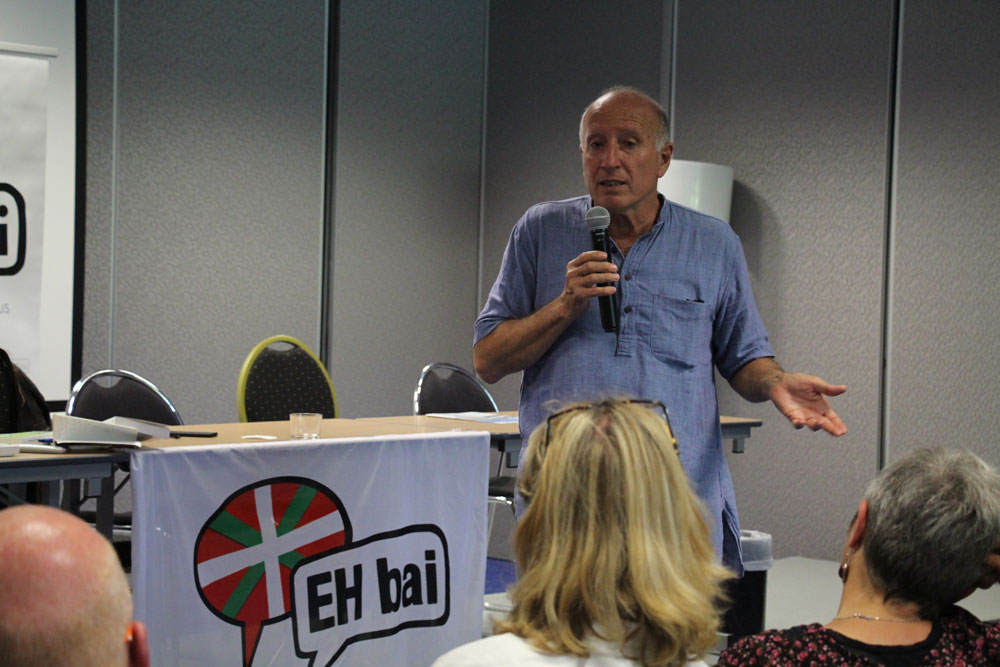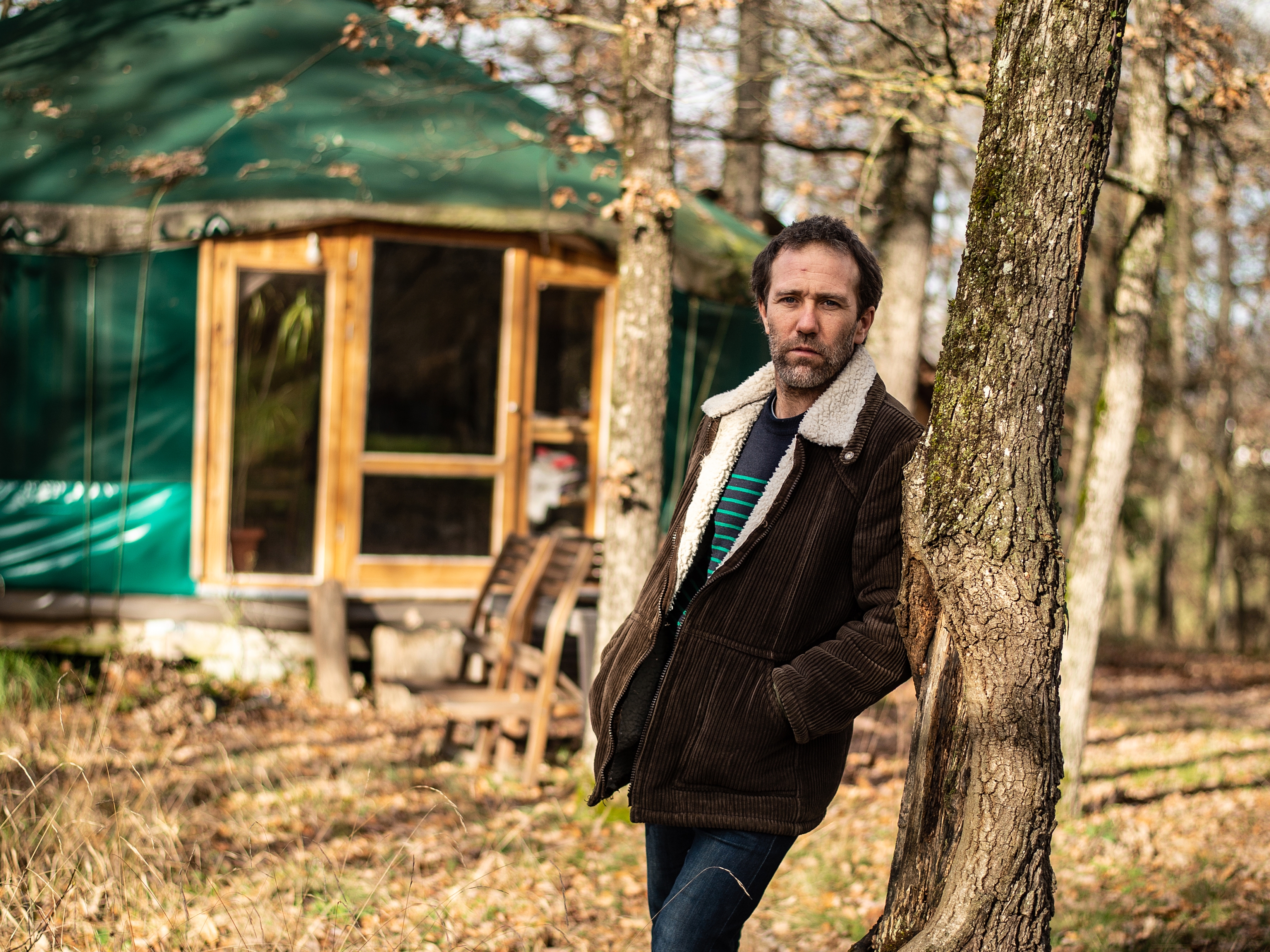"Not only do we have to develop other models, but we have to come to power."
- In trade unionism, in alterglobalism and in politics, the sociologist Christophe Aguiton has been militating for some time, always from the far left and trying to maintain the horizontality. Attac as AC! between the associations and the founders of Sud PTT. La gauche du 21ème siècle, enquête sur une refondation (cap. The left of the 19th century, a study on a refoundation, tells us about the extreme left and the alternatives.

The constituent is looking at the extremes.
Looking at the countries of Western Europe and North America, we can do the same reading over recent years. Since the 2007-2008 crisis, and as a consequence, we have detected three evolutions: the denial of liberal globalisation, the weakening of the ruling parties and the double ascent, both of the populist xenophobic right and of the left-wing radical forces.
The far right seduces those who suffer from the sistema.Hay than to look more
closely at electoral sociology: it is true that the traditional working class has been completely removed from the classical left and directed to the far right. The National Front is the most voted party by the French working class, both in Germany with AfD and in Brexit with UKIP, as in Germany. The radical left is unable to slow down this development. But there are two other factors to bear in mind: radical left-wing votes have increased on the part of precarious intellectuals, that is, those who have completed higher education and are highly precarious. On the other hand, immigrants who have achieved citizenship, or the children of immigrants, are on the left and are now on the right.
The radical left is addressed to the staff.
You will get your votes if you have a clear speech on social issues and, of course, show your support for the fight for labour rights and social aid. That is to say, whether these are issues that directly affect this social category.

Even in power, it is difficult for the left to pursue a radical policy.
Three problems are repeated in the examples we have. One, how far do we go with fracture? We have seen that the government has given priority to negotiating with Syriza. Let us remember that Syriza received great support on the continent and I am sure that the call from Athens could bring mobilisation at European level. They did not want to do so, not even at the level of Greece, especially at the level of Yanis Varoufakis, who rejected the proposed Plan B. In very different conditions, but with Lula we can see the same thing. He picked up the parliament that the landowners control. When he came to power, he did not want the Constituent Assembly to be set up, as did Chávez, Morales or others. The absence of fractures has made him very expensive.
"The Zadists have been able to mobilize and have been able to maintain unity on the way forward. Also playing with the system: seeing that collective land management was not possible, they have submitted individual projects to collect them once authorized"
What's the second problem?
It is more problematic because it questions the tradition of the left of the twentieth century: the model of development, productivism or extractivism. In the case of Venezuela, when Chávez came to power, 90% of the state's budget was tied to oil, which today is exactly the same as Maduro. The realisation and reflection of a new economic model is impossible for them. And the third problem: there's often rapid leadership. Nor is it capable of developing genuine democracy here.
Two words about representative democracy?
It's a big difference with the 20th century, because then the radical left came to power through wars or persecution. Today, we have elections and there is no problem in itself. But we must go beyond representative democracy. Today, for five years we have chosen a kind of monarch, which is mostly well articulated and has its free path for five years.
Here and there the alternatives go floreciendo.El
20th century socialism was very static, based on the nationalization of large productions and on the planning of the economy. Of course, we need that nationalised sector to secure the public service. But not everything goes well. Today, new alternatives appear, let's say with commons. It serves us to change our view of the economy, which in addition to anti-capitalist it can also be anti-static. Values such as the abandonment of anthropocentric vision, ecofeminism are also expanding... All of them are not a unique and coherent model, because we are in a transition; but they are clues to building another society and economy.
If they take up too much space, repression.
The best example is Notre Dame des Landesko ZAD. It has hampered States, by a matter of principle, to continue with the individualistic vision of the economy. This shows us that, in addition to developing other development models, we must come to power to change the rules of the law. We must combine the development of local alternatives with the construction of a strong relationship of strength. The Zadists have been able to mobilize and maintain unity. Also playing with the system: seeing that the collective management of the land was not possible, they have presented individual projects for their collection after authorization.
Macron made his press conference on 12 June to read the elections to Parliament. Above all, it has had the time to repeat that the right end and the left end are both landers exactly the same. Although he has criticised one and the other, he has opened up ideas of charm of the... [+]
I will spare you too many explanations and details, the esteemed reader who looked at this text. The issue is very simple. I'll talk about you, about me, about all of us. I am going to refer to the amazing travellers of this boat that is still floating without direction and ever... [+]
The crisis on the left jumps to Latin America. Until recently, progressive governments could be found on almost the entire map of the region. But things are changing in recent months. The three presidential elections marked a turning point: Daniel Noboa won in Ecuador, Javier... [+]
“And what is the weather she perceives for Thursday?” I asked the feminist militant that she was organizing the A30 strike. “The truth is that lately I’ve had my head in a conflict at school,” he replied with a serious face.
The Vox Solidarity party union called for a... [+]
When analyzing the history of social movements and protest, the most abundant studies are those of the Contemporary Age. Sources are more abundant, conflicts are more abundant, and researchers also share the view of the world of research. That is, as we pass through the sieve of... [+]
French and Spanish leftist parties and movements have a different relationship with the concept of nation and with nationalism. This completely conditions the relationship with the Basque nationalists. But why? The key to the theme lies in the different processes of creation of... [+]
Euskal Herrian "paradigma iraultzaile berria" zabaldu eta garatu nahi duen Kimua ekimen herritarra zenbait herritan aurkezpen bira osatzen ari da. Hala Bedi irratian Kimuako kide batekin hitz egin dute proiektuaren inguruan gehiago jakiteko.























